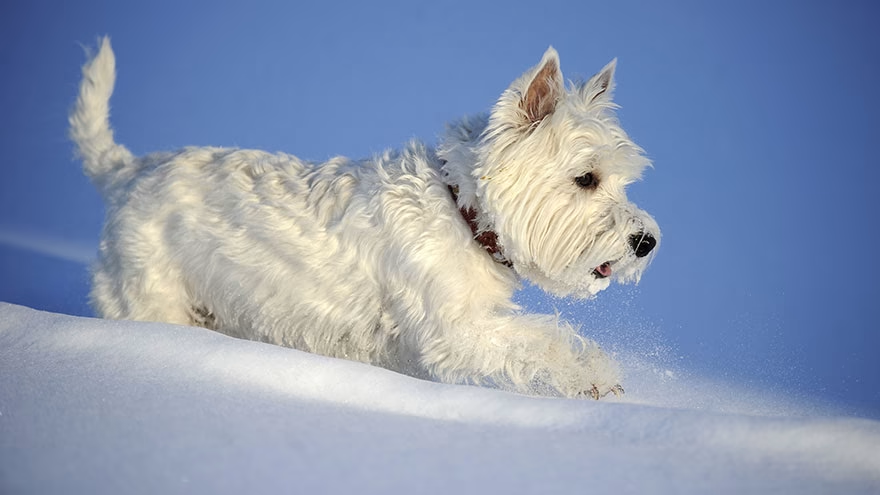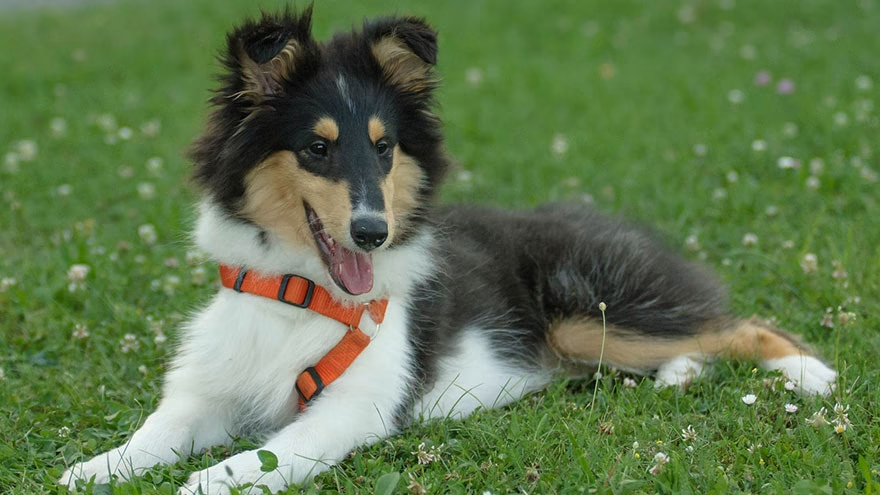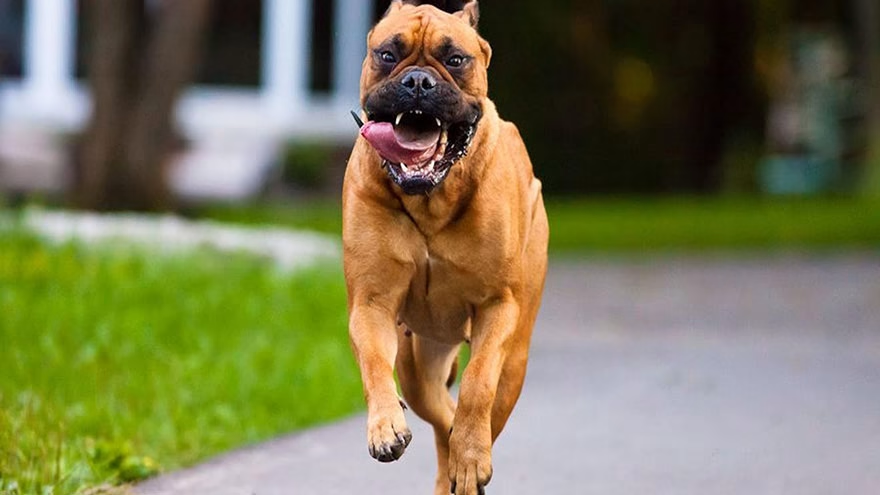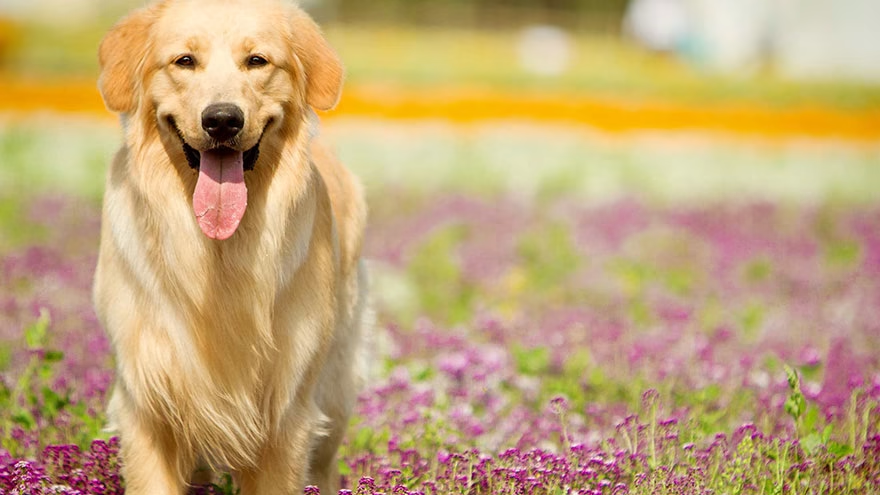The West Highland White Terrier will be fine in a home without a large yard. Most dogs of this breed are active indoors and will do well with just a little bit of regular exercise. A Westie will enjoy being around people and may do well with children if the children are well behaved and do not torment the dog. West Highland White Terriers are reasonable healthy and live a long life.
West Highland White Terrier Temperament
The West Highland White Terrier can have a high degree of “self-esteem” according to experienced owners. At the same time, Westies are friendly dogs and like to have companionship. The dogs of this breed are known to be good watch dogs too, as they bark loudly and are self-assured enough not to be afraid of other dogs.Westies are strongly built and have an inquisitive nature. Thus, they will chase small animals but usually do not cause them injury. The American Kennel Club recognizes the Westie as being very alert and even courageous. Extremes of timidity or aggression are rare and considered faults in the West Highland White Terrier.
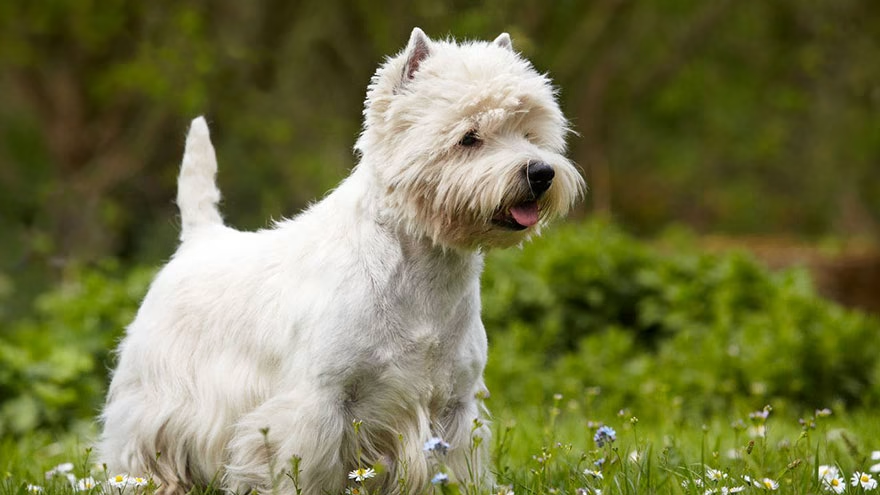
West Highland White Terrier Size And Color
The adult male Westie will stand about 10 inches to 12 inches at the withers and weigh from 15 pounds to 22 pounds. The female of the breed will be about 9 inches to 11 inches tall and weigh from 13 pounds to 16 pounds.As the name implies, this breed has a white coat with strands about two inches long. The undercoat is shorter and softer. The tail is generally about 5 inches to 6 inches long and carried upright. It should not be docked, according to club guidelines.
Any color other than white is considered a fault. Some dogs of this breed have a gold or wheat colored coat and are considered unacceptable as show dogs.
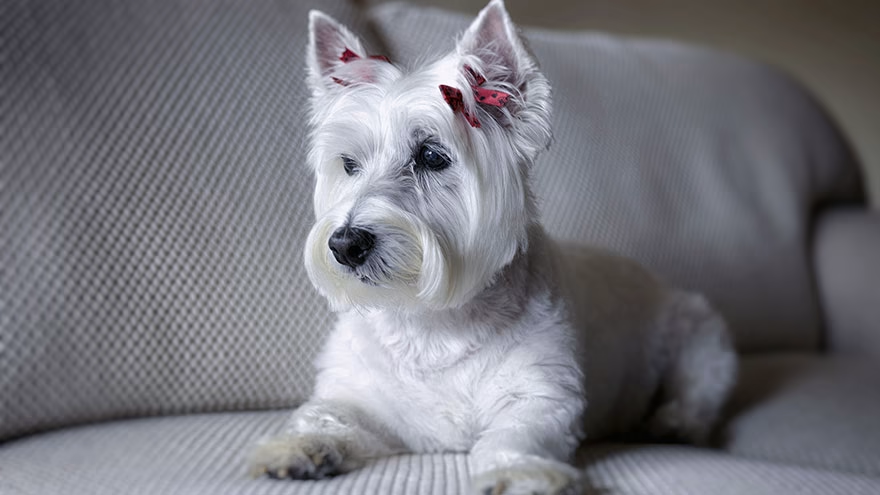
West Highland White Terrier Feeding And Grooming Requirements
Frequent brushing is recommended for the straight strands of the coat. This keeps it distributed evenly and helps keep the coat oiled properly. Westies are prone to dry skin problems, so frequent bathing is discouraged.Extra attention should be paid to the Westie’s ears, as this breed can develop wax buildup and minor ear infections. The West Highland White Terrier is relatively easy to feed and will develop eating habits quite easily as it adapts to the family schedule. Although the Westie is not naturally a one-person dog, it may be best to have one person in the family be responsible for determining when the pet will eat, where it will sleep and so on.
The Westie needs to learn a routine it can live by. Some purebred dogs develop allergies to cheaper commercial foods, commonly because of the high grain content of these brands. This could be a problem for the Westie since the breed may be prone to skin problems and skin irritations.
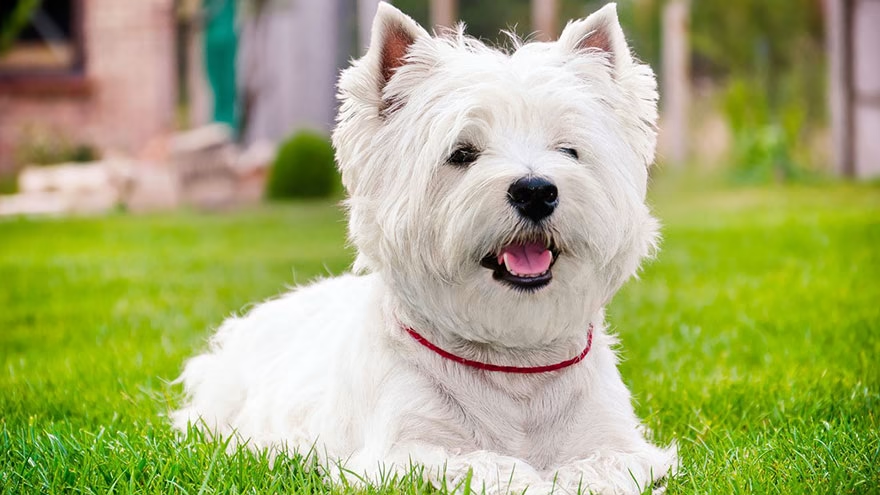
West Highland White Terrier Exercise Needs
The West Highland White Terrier will do well with occasional walks on a leash and some time to run a bit in a protected area. The Westie does not generally need a lot of exercise and is active indoors.This may be a good dog for those living in a rural area as well as for those in the city. But most Westies do not like to be held for long periods, as they prefer to move about on their own indoors and rest apart from others.
West Highland White Terriers were used as hunting dogs in the early years of the breed, often helping their master bring home small game such as rabbits and squirrels. So Westie owners should be prepared for an active and energetic pet that also tends to act a bit bigger than its actual size.
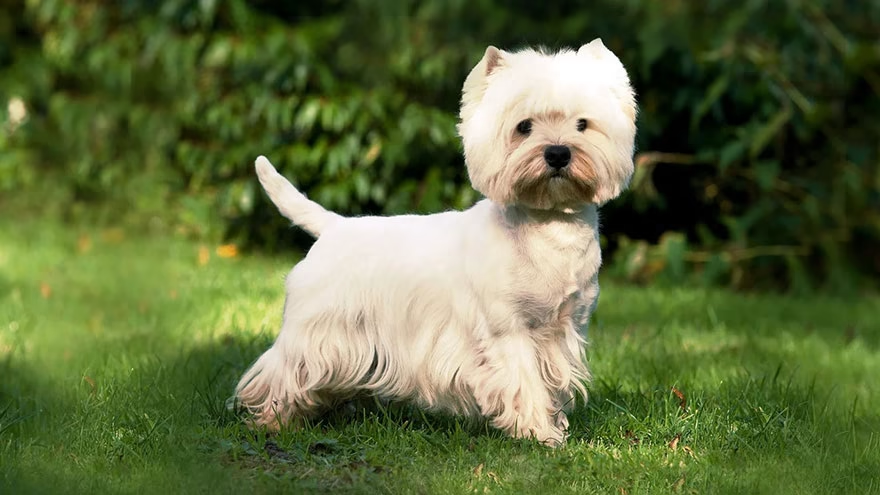
Read More About West Highland White Terrier
- West Highland White Terrier : 10 Most Common Questions
- West Highland White Terrier Training Guide
- West Highland White Terrier Health Guide
- Owning A West Highland White Terrier : Breeder Recommendations
Save for later
Found this helpful?
Pin this article to your Pinterest board and come back to it whenever you need a reminder.
Save to Pinterest